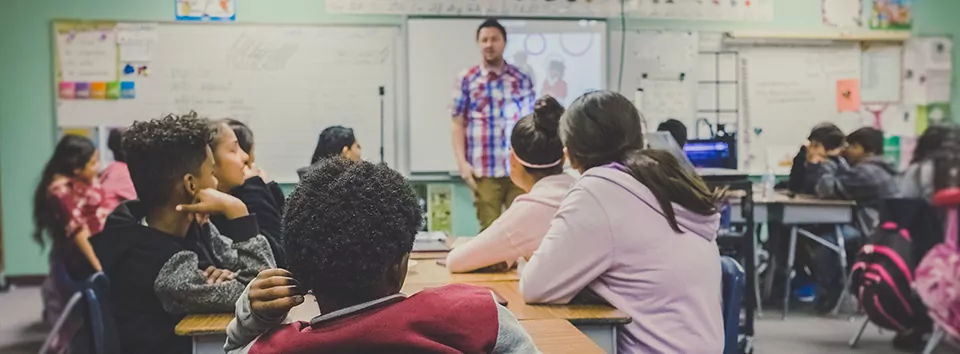News

In Florida counties like Duval, Miami-Dade, Palm Beach and others, there has been substantial growth in charter schools over the past five-to-six years. With new Florida charter school legislation (CS/HB 7069) passed by Governor Scott just last year, we only expect that trend to continue to grow in the Sunshine State. So, what exactly did this bill propose? As vice president of religious, education & not-for-profit group at Foundry Commercial, it is my responsibility to dig deep on legislation like this. What I discovered in my research might just surprise you, including increased charter school growth, positive new futures for failing public schools and the promising Schools of Hope program.
What is HB 7069?
The new legislation was widely known as a pro-charter school bill, which is not necessarily inaccurate, though I do think it can have a positive impact across entire school districts. What it proposes is, if a traditional public school receives below a C grade for three consecutive years, the school district must choose one of the following options:
- Reassign students to another school and monitor the progress of each reassigned student
- Close and reopen the school as one or more charter schools, each with a governing board that has a demonstrated record of effectiveness
- Contract with an outside entity that has a demonstrated record of effectiveness to operate the school, which may include a district-managed charter school in which all instructional personnel are not employees of the school district, but are employees of an independent governing board composed of members who did not participate in the review or approval of the charter.
Tax Money and Added Growth
Additionally, this Florida charter school legislation mandates that counties start sharing facility funding that comes through tax revenue based on the amount of students in the county. This was decided in order to help charter schools get the funding they need, which was far more difficult in the previous private model that only allowed access to public funds after three years.
More specifically, under state law, school districts are permitted to levy up to $1.50 for every $1,000 in taxable property value to raise money for construction, maintenance and the purchase of equipment. School districts have not shared this in the past and actually filed a lawsuit against the State of Florida to block it. In January of this year, the judge denied the request from the school boards and ordered them to share these funds with charter schools.
Schools of Hope
Known as the Schools of Hope program, this set up new rules and a $140m fund to encourage charter schools to move into areas where the nearest traditional public schools have persistent low grades. Schools of Hope Charter schools are essentially guaranteed charter approval to open either in the attendance zone of, or within five miles of, a local traditional public school that has earned lower than a C grade from the state for three consecutive years. As a form of oversight, Schools of Hope operators must be approved by the state. The legislation also lifted the one-per-year cap for a high performing charter school to replicate (guaranteed charter approval) if they replicate in a persistently low-achieving area.
The new legislation will act as a way to backfill the spaces created by poor-performing schools and provide more options for parents looking to provide their children with a quality education.
What this Legislation Could Mean for the Commercial Real Estate Market
Though only time will tell how this will impact our marketplace, specifically in the religious and education commercial real estate market, I have some educated guesses as to what the future holds:
- Smaller operators will be empowered to build or expand their charter schools thanks to additional facility funding from the county.
- The market will grow in currently struggling areas, allowing new charter schools to take the place of failing or near-failing schools.
- We may see a growth in charter high schools as existing K-8 charter schools mature and additional facility funds are introduced to help bridge the gap of increased facility development costs incurred in high school campuses.
Though there has been skepticism about this legislation’s intent, I believe it largely acts to create more options for school districts that need a change. Some children flourish in different learning environments than what is provided in traditional public schools. Instead of allowing consistently underperforming schools to underserve their communities, this legislation provides a second chance for kids to achieve scholarly success–a pursuit I think we can all get behind.
SEO Title: Florida Charter School | Foundry Commercial
Meta description: What does new Florida charter school legislation mean for our school districts and the marketplace as a whole?
Categories: Religious and Education
Tags: Florida charter school, Florida legislation, HB 7069, Florida charter school legislation, CRE, Florida public schools